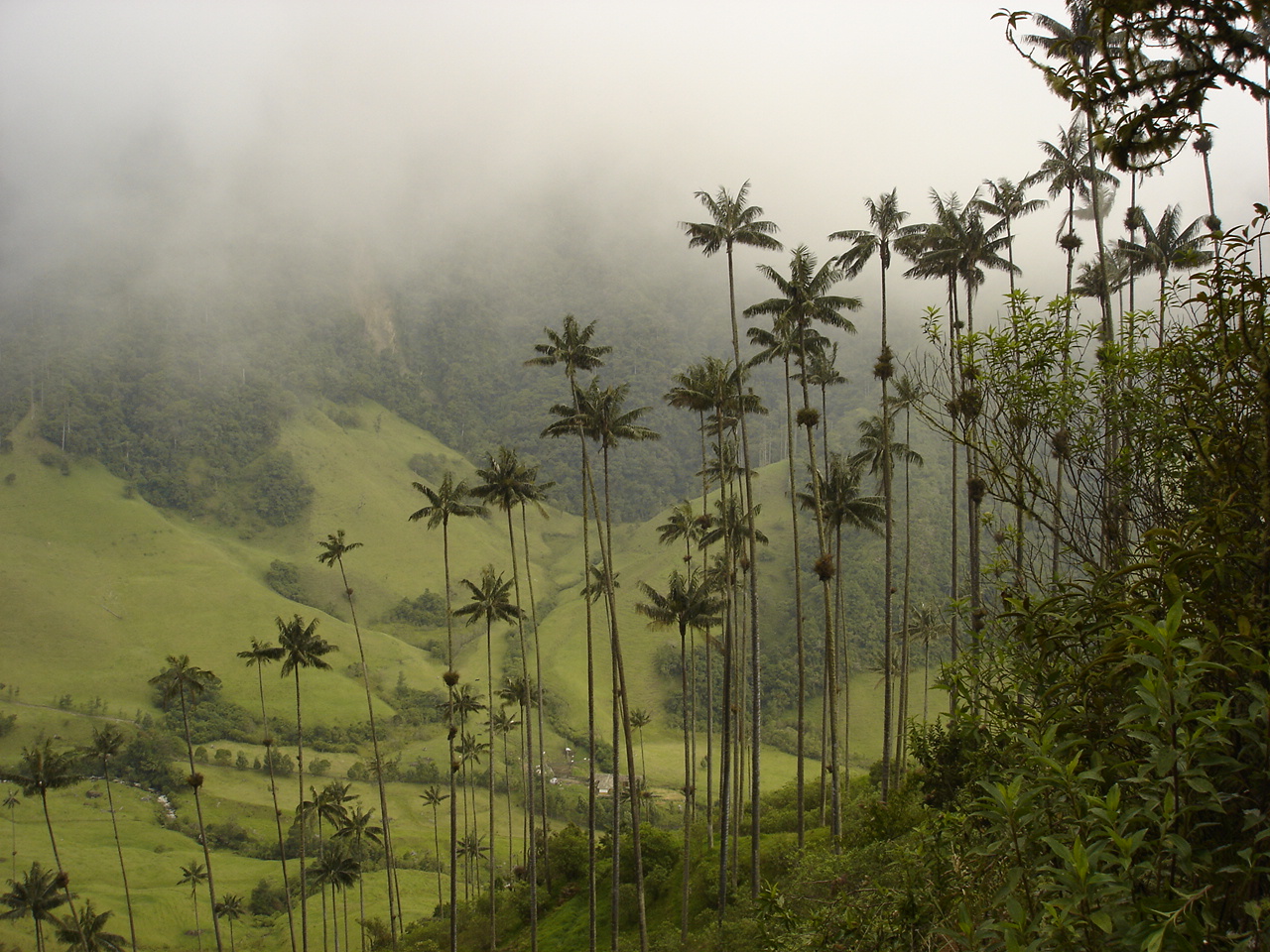According to Global Forest Watch, 16 million hectares of tropical forests have disappeared in 2017 alone. Anthropogenic activities are the major causes for this green cover loss. For example take the case of Colombia. Situated in the north western corner of the South American continent, Colombia ranks high among megadiverse countries. According to the Convention on Biological Diversity website, Colombia ranks first in bird and orchid species' diversity and second in plants, butterflies, freshwater fishes and amphibians. With 314 types of ecosystems, Colombia possesses a rich complexity of ecological, climatic, biological and ecosystem components. Colombian President recently asserted that biodiversity is to Colombia what oil is for the Arab countries.
But ever since the ultraleft guerrillas, the FARC, (Revolutionary Armed Forces of Colombia), signed the peace treaty with the Colombian govt. and vacated the valleys and forests (which were their habitat for 50+ years) Colombia's ecological wealth has been fast disappearing. Because urban developers want to clear the forests to set up housing, industrial and commercial projects and of course timber is a source of easy money.
An equally disturbing situation is unfolding in Antarctica . The Antarctica Treaty was initiated in 1959 with 12 nations. Later this number grew to 53. According to the Environmental Protocol the participating countries committed themselves to protect and cherish the ecosystem and use it only for science and peace. All the signatories were on the same page while signing, but no longer so. Geopolitics is threatening the pristine continent because of speculations on the continent's stock of fish and minerals as every nation wants a share. Recent reports state that in Ile aux Cochons, an Antarctica island, penguin population has declined by 90% in a span of 3 decades for reasons as yet unknown.
Meanwhile the United States has relaxed its Ocean Policy. Earlier administration had put stringent restrictions on offshore activities after the 2010 Deepwater Horizon Disaster in the gulf of Mexico. That disaster, an explosion in the deep sea oil rig, caused 134 million gallons of crude oil to spew out into the Gulf of Mexico causing environmental damages to the tune of 17.2 billion dollars. This damage has not yet been contained nevertheless US Govt. has decided to revoke the restrictions and promote offshore drilling for gas and oil over approximately 78 million acres offshore. The region-wide lease sale is scheduled for Aug. 15, 2018.
We were just 1 billion people in the year 1800 and currently register 7.6 billion and by 2100 the number will touch 11 billion. Population challenge is compounded by shrinking villages and booming urban spaces. 70% of the global population will be city dwellers by 2050. China, India and Nigeria are expected to lead in this sphere. Sure enough anthropogenic activities associated with urbanisation will steadily and rapidly deplete natural resources. Who should be concerned, Man or Mother Nature? Nature has been through 5 cataclysmic mass extinctions, it can easily survive one more. Professor Reinhard Huttl at the Helmholtz Institute for Earth and Environment observes wryly that Earth has enough generative power to tide over any disaster, it is us humans who are in danger.
REFERENCES:
1. Reform the Antarctic Treaty : Nature editorial 14 June 2018,pp161
2. Watch over Antarctic waters: Cassandra Brooks et al, Nature 14 June 2018 pp177-180
3. Antarctica: Nature Insight 14 June 2018 pp 199- 241(Several articles)
4. Last King Penguin colony in the world drop by 90%
 |
| Cocora Valley, Colombia: Courtesy: wikipedia |
 |
| MS Explorer sank in Antarctica in 2007 after hitting an iceberg Courtesy: wikipedia |
 |
| Deepwater Horizon Disaster Courtsey: wikipedia |
Meanwhile the United States has relaxed its Ocean Policy. Earlier administration had put stringent restrictions on offshore activities after the 2010 Deepwater Horizon Disaster in the gulf of Mexico. That disaster, an explosion in the deep sea oil rig, caused 134 million gallons of crude oil to spew out into the Gulf of Mexico causing environmental damages to the tune of 17.2 billion dollars. This damage has not yet been contained nevertheless US Govt. has decided to revoke the restrictions and promote offshore drilling for gas and oil over approximately 78 million acres offshore. The region-wide lease sale is scheduled for Aug. 15, 2018.
We were just 1 billion people in the year 1800 and currently register 7.6 billion and by 2100 the number will touch 11 billion. Population challenge is compounded by shrinking villages and booming urban spaces. 70% of the global population will be city dwellers by 2050. China, India and Nigeria are expected to lead in this sphere. Sure enough anthropogenic activities associated with urbanisation will steadily and rapidly deplete natural resources. Who should be concerned, Man or Mother Nature? Nature has been through 5 cataclysmic mass extinctions, it can easily survive one more. Professor Reinhard Huttl at the Helmholtz Institute for Earth and Environment observes wryly that Earth has enough generative power to tide over any disaster, it is us humans who are in danger.
REFERENCES:
1. Reform the Antarctic Treaty : Nature editorial 14 June 2018,pp161
2. Watch over Antarctic waters: Cassandra Brooks et al, Nature 14 June 2018 pp177-180
3. Antarctica: Nature Insight 14 June 2018 pp 199- 241(Several articles)
4. Last King Penguin colony in the world drop by 90%
No comments:
Post a Comment